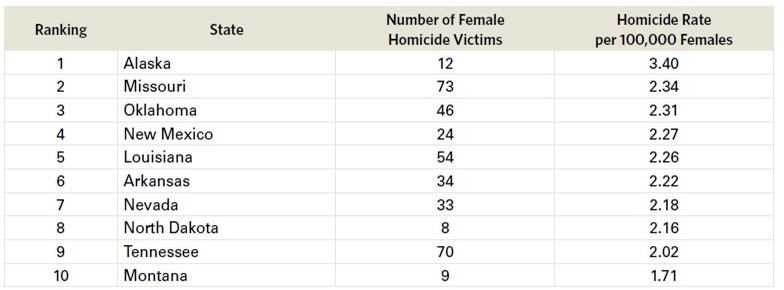Nearly 2,000 women were murdered by men in 2018 and the most common weapon used was a gun, according to the most recent edition of the annual Violence Policy Center (VPC) study When Men Murder Women: An Analysis of 2018 Homicide Data.
Each year the VPC releases this report in advance of Domestic Violence Awareness Month in October. The study uses 2018 data, the most recent year for which information is available. The study covers homicides involving one female murder victim and one male offender using data from the Federal Bureau of Investigation’s Supplementary Homicide Report.
The study found that nationwide, 92 percent of women killed by men were murdered by someone they knew and that the most common weapon used was a gun.
VPC Legislative Director Kristen Rand states, “The sad reality is that women are nearly always murdered by someone they know. Although advocates and many community leaders are working tirelessly to reduce the toll of domestic violence, there is still much more work to be done to protect women in harm’s way.”
This is the 23rd edition of When Men Murder Women. From 1996 to 2018, the rate of women murdered by men in single victim/single offender incidents dropped from 1.57 per 100,000 women in 1996 to 1.28 per 100,000 women in 2018, a decrease of 18 percent. Since reaching its low of 1.08 in 2014, the rate has increased, with 2018’s rate of 1.28 up 19 percent since 2014.
Below is a table of the states with the 10 highest rates of females murdered by males in single victim/single offender incidents in 2018.

For each of these 10 states, the study offers a detailed summary including: the number of victims by age group and race; the most common weapons used; the victim to offender relationships; and, the circumstances of the homicides.
Read more at Violence Policy Center


